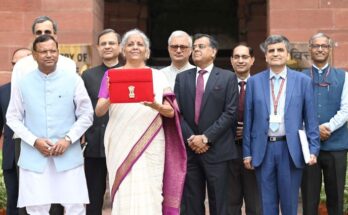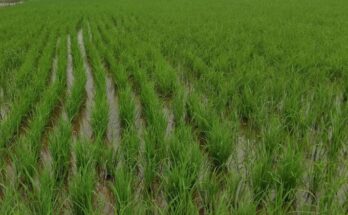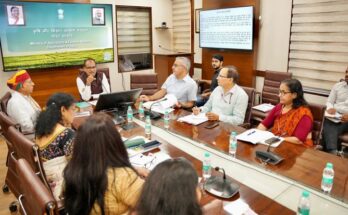Minister for Agriculture and Farmers’ Welfare, Government of India, Narendra Singh Tomar today inaugurated 22 bamboo clusters in nine states — Gujarat, Madhya Pradesh, Maharashtra, Odisha, Assam, Nagaland, Tripura, Uttarakhand and Karnataka — through video conference. On the occasion, the minister also unveiled the logo for National Bamboo Mission. Lauding the success of the National Bamboo Mission, Tomar said that the country is now gearing up to increase the export of bamboo products.
Addressing the video conference, the minister said that the government’s goal in the bamboo sector was being achieved with the concerted efforts of all stakeholders of the Bamboo Mission. Keeping in consideration the importance of bamboo, the Indian Forest Act 1927 was amended in 2017 to remove bamboo for the category of trees. As a result, now anyone can undertake cultivation and business in bamboo and its products. Import policy has also been modified to ensure progress of the bamboo industry in the country. Tomar said, the use of bamboo has been an ancient tradition in India and it is now being supported with modern technology. Youth are also being given training for bamboo industry.
The minister called upon the states to take forward the objectives of the Mission. The support being given by the Mission to local artisans through locally grown bamboo species will also actualise the goal of Vocal for Local. This will help increase income of farmers and at the same reduce dependency on imports of some raw material. With the wealth of bamboo in India and growing industry, India should aim to establish itself in global markets for both engineered and handcrafted products.
The restructured National Bamboo Mission was launched in 2018-19 for holistic development of the complete value chain of the sector. The Mission is being implemented in a hub and spoke model, with the main goal of connecting farmers to markets so as to enable farmer producers to get a ready market for the bamboo grown and to increase supply of appropriate raw material to domestic industry, the Ministry of Agriculture has said.
According to the ministry, the bamboo ecosystem has been energised with 23 states being assisted, including all the eight states of North East. The 10 most important species which are required by industry have been identified and quality planting material is being made available to farmers for plantations. Assam has already engaged farmer producer organisations (FPOs) for raising plantations. New FPOs will also be formed under the recently approved scheme of Department of Agriculture, Government of India for formation of 10,000 FPOs in five years. Further primary processing, CFCs are being set up close to the plantations which will enable cost of transportation of whole bamboo to be reduced, increase local entrepreneurship and move to a zero waste approach.
These will be engaged in raising nurseries and plantations and/or product development like furniture, agarbatti, venetian blinds, chopsticks, toothbrush, lifestyle products, jewellery, bottles, yoga mat, charcoal, among other utilities. Together with industrial products, the National Bamboo Mission also endeavours to upgrade skills of traditional bamboo craftsmen as per requirement of contemporary markets with tie up with enterprises and premier institutes so that our cultural heritage is continued. The sector skill councils established under National Skill Development Agency (NSDA) will also impart skills and recognition of prior learning to traditional artisans. This will also encourage the youth to carry forward their family traditions, the ministry has informed.

The winner of the logo contest, Sai Ram Goudi Edigi of Telengana was selected from 2033 entries received on MyGov platform from across the country. The logo portrays a bamboo culm in the centre of a circle composed of half an industrial wheel and half farmers, depicting the objectives of NBM appropriately. The green and yellow colour of the logo symbolise bamboo often termed as green gold.




